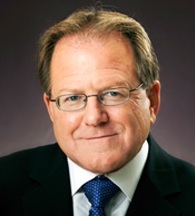 |
| AMRI CEO William Marth |
Contract drug developer AMRI ($AMRI) posted a 15% boost in its quarterly revenue, using M&A and manufacturing demand to help wean it off royalty cash.
The company's net revenue came in at $68.2 million, beating last year's $59.3 million thanks to a leap in sales that made up for a 21% drop in royalties. AMRI's contract revenue leapt 21% to $61.5 million on the quarter, thanks in part to AMRI's February acquisition of contract manufacturer Cedarburg Pharmaceuticals for $41 million.
The company's booming large-scale manufacturing segment again led the way, growing 34% to $42 million. AMRI's other business, which companies drug discovery and small-scale manufacturing, came in about flat at $19.5 million. However, thanks to a long-running restructuring plan, the latter business' margins rose to 19.1% compared to 13.1% last year, helping AMRI post net income of $3.7 million on the quarter and beat last 2013's $2.5 million loss.
For the full year, AMRI is expecting revenue to come in at up to $283 million, factoring in the sales of recent acquisition Oso Biopharmaceuticals and banking on continued demand for its manufacturing services, CEO William Marth said.
"We continue to see growth in our pipeline of discovery and development programs, notably the expansion of our innovative insourcing chemistry program, together with the addition of new development and supply programs in our API and drug product divisions," Marth said in a statement. "Based on anticipated continued growth of our business and the recent addition of OsoBio, we are raising our outlook for 2014 with contract revenue growth of 33% and adjusted diluted EPS growth of 29% at the midpoint."
AMRI is still working to reduce its dependence on royalty revenue, tied largely to Sanofi's ($SNY) Allegra, and maximize its strengths in manufacturing. In April, the Albany, NY, company disclosed plans to shutter a Syracuse facility focused on early-stage services, looking to save about $1.5 million a year after it takes a charge of up to $6.5 million tied to the move.
- read the results